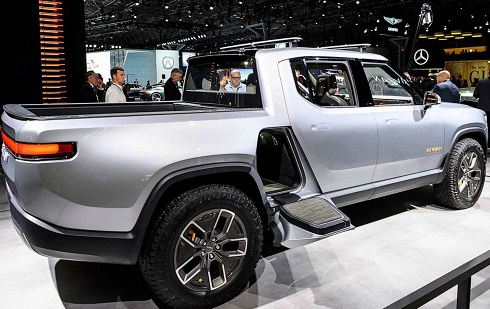The Electric Pickup Revolution – Saga brings electric trucks to the streets
As the automotive industry continues its shift towards sustainable transportation solutions, Saga, a leading electric vehicle manufacturer, is set to make a significant impact with its entry into the electric pickup truck market.
This article explores Saga’s entry into the electric pickup truck segment and the implications of this move for the future of both electric vehicles and the pickup truck market. With a focus on sustainability and innovation, SAGA’s endeavor marks a remarkable achievement in the ongoing transformation of the automotive landscape.
Saga’s electric pickup truck offers:
Saga’s entry into the electric pickup truck market is set to disrupt the industry by offering a sustainable alternative to traditional gasoline-powered trucks. With a commitment to eco-friendly transportation, Saga’s electric pickup truck promises zero-emissions performance without compromising on power, utility and towing capabilities. By leveraging advanced electric drivetrain technology, Saga aims to provide customers with an efficient, reliable and environmentally conscious pickup truck option.
Environmental Impact and Sustainability:
The introduction of the electric pickup by Saga is in line with the global push for sustainability in the transport sector. Traditional pickup trucks, known for their fuel consumption and associated greenhouse gas emissions, contribute to environmental concerns. Saga’s electric pickup truck offers a solution by offering a green alternative that reduces carbon footprint and air pollution. By adopting electric mobility, consumers can contribute to mitigating climate change while enjoying the utility and versatility of a pickup truck.
Market potential and consumer demand:
Saga’s entry into the electric pickup truck market comes at a time when the demand for electric vehicles is on the rise, especially in the pickup truck segment. With growing awareness of the environmental impact of transportation , consumers are looking for electric alternatives that align with their sustainability goals. Saga’s move to provide an electric pickup truck meets this demand and presents an opportunity to capture a significant market share as more consumers prefer environmentally friendly vehicles without compromising on performance and utility.
Technological Progress and Limitation Considerations:
One of the key factors affecting the adoption of electric vehicles, including electric pickups, is range and charging infrastructure. Saga’s electric pickup truck is expected to incorporate technological advancements to address range anxiety concerns. By offering competitive range and potentially taking advantage of fast-charging capabilities, Saga aims to instill confidence in consumers, ensuring their electric pickups can travel long distances and recharge easily when needed.
Impact on the Automotive Landscape:
Saga’s entry into the electric pickup truck market has huge implications for the automotive industry. As one of the first electric vehicle manufacturers to introduce an electric pickup truck, Saga sets a precedent for other manufacturers to follow suit. The move underlines the industry’s commitment to move away from fossil fuel dependent vehicles and embrace electrification across diverse vehicle categories. Saga’s entry into the electric pickup truck segment could potentially catalyze innovation, competition and increased investment in electric vehicle technology.
Conclusion:
Saga’s foray into the electric pickup truck market is an important milestone in the automotive industry’s transition towards sustainable transportation solutions.
By offering an eco-friendly alternative to traditional gasoline-powered trucks, the Saga aims to meet the demand for electric vehicles while maintaining the functionality and versatility of pickup trucks.
As the market for electric vehicles expands, Saga’s electric pickup has the potential to drive further adoption and contribute to the ongoing transformation of the automotive landscape, fostering a greener, more sustainable future.

